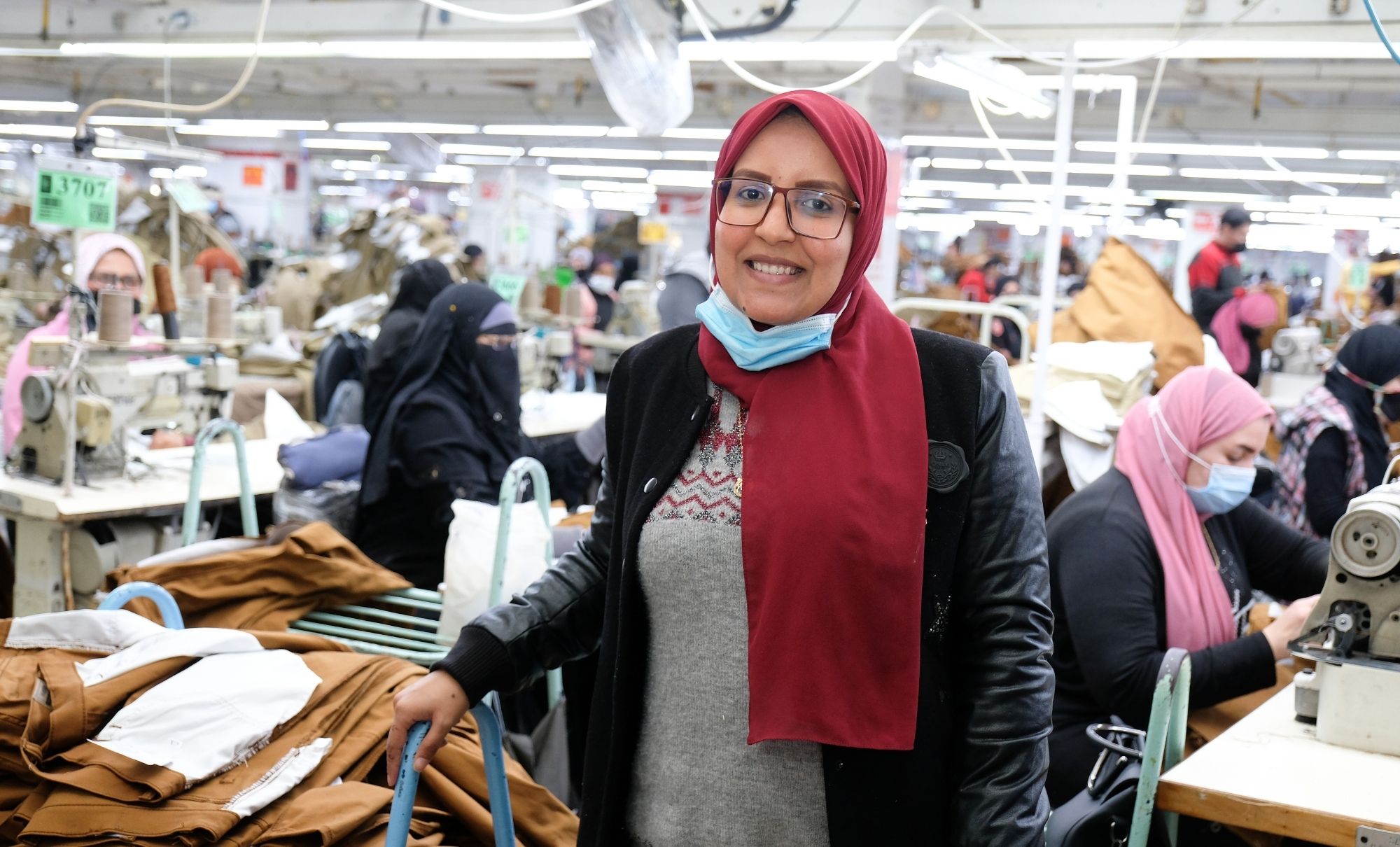For over a decade, Levi Strauss & Co., in partnership with the Levi Strauss Foundation, has aimed to improve the lives of the women and men who make our products through our Worker Well-being (WWB) initiative. WWB is a part of our commitment to putting people first, recognizing that effecting change and ensuring meaningful impact requires setting higher standards for ourselves, our suppliers and the industry. Cumulatively, WWB has reached more than 219,000 workers in 113 supplier factories through investments in gender equity, health and economic security.
To positively impact the well-being of apparel workers around the globe, we know that it’s critical to listen to and learn directly from workers and our partners. Their input has enabled us to continually grow and advance the initiative.
Today, we are proud to announce LS&Co.’s updated Worker Well-being Guidebook, which articulates our refreshed strategy and goals for 2025 and 2030.
Making Deeper and Better Investments
In 2017, LS&Co. and the Levi Strauss Foundation partnered with the Sustainability and Health Initiative for NetPositive Enterprise (SHINE) at the Harvard T.H. Chan School of Public Health to survey over 13,000 workers in our supply chain across five countries: Cambodia, China, Mexico, Poland and Sri Lanka. Through hundreds of group conversations and direct interviews with workers and suppliers, this multi-year study highlighted that workplaces that cultivate trust, respect and fairness lead to meaningful improvements in gender equality, well-being and productivity.
“Through our three-year study, we were able to define what well-being means in the apparel context, measure it and identify what drives it for garment workers. Our findings reinforce the point that people are foundational to business success and that how work gets done deeply affects people’s lives. As such, raising well-being and equity among workers helps build resilient supply chains, business success and further sustainable development.”
— Dr. Eileen McNeely, Founder and Executive Director of SHINE at the Harvard T.H. Chan School of Public Health
These findings, in addition to our decade of implementation experience and learnings from dozens of NGO partners, have served as the foundation for updating our approach to well-being through the WWB Guidebook.
Our updated WWB Guidebook offers brands and contract factories a self-directed approach to identify locally relevant ways to improve well-being and business performance. The updated guidebook will support suppliers in establishing strong internal worker-management teams that are able to identify needs, develop solutions and set new priorities across three focus areas that are proven to create impact and advance well-being: gender equity, workplace environment and policies and systems.
A key component to our updated approach is improving worker-manager cooperation and communication, which is critical for establishing a workplace environment where workers feel heard and valued. The guidebook will offer suppliers a variety of ways to create and support dedicated committees where workers and managers are able come together to diagnose workplace challenges, solutions and opportunities. Through these teams, suppliers will also be able to better understand where greater investments across the three focus areas can be made — such as formalizing pathways to promotion for women apparel workers or experimenting with alterative pay systems. Once suppliers and worker-management teams have identified the areas for greater investment together, they will be able to track their progress and build toward improved worker well-being.
“When we elevate trust, respect, and fairness in partnership with our supply chain, we are all more innovative, agile, and resilient. LS&Co. has many accomplishments to celebrate with our WWB community and we remain committed to the progress of the initiative so we can, together, deepen our impact.”
— Liz O’Neill, LS&Co. Executive Vice President and Chief Operations Officer
Our Long-term Goals
By 2025, our aim is that suppliers will have supported the creation and leadership of worker-manager teams, as well as identified and made progress on deepening their investments in worker well-being in the areas of gender equity, workplace environment and policies and systems. LS&Co. will also complete a comprehensive review of our own purchasing practices. Improving purchasing practices is a key determinant in helping to develop strong relationships between suppliers and brands, which can positively impact worker health and well-being outcomes. In the spirit of ongoing industry collaboration, we will continue to share the outcomes of our efforts and lessons learned.
By 2030, more than 80 percent of LS&Co.’s product volume will be made in factories that demonstrate continuous improvements to worker health, satisfaction and engagement scores.
We have been fortunate to learn and grow with a network of partners around the globe. Together, we will continue to drive new strategic ways of advancing worker well-being.







